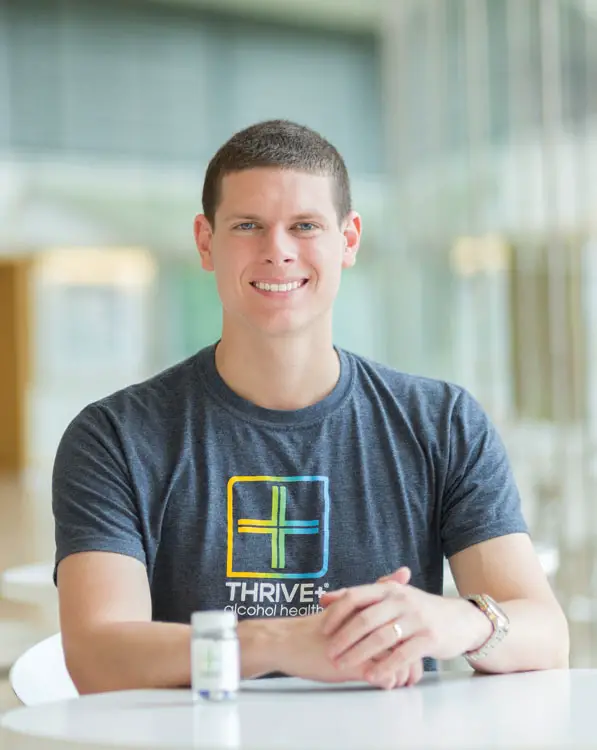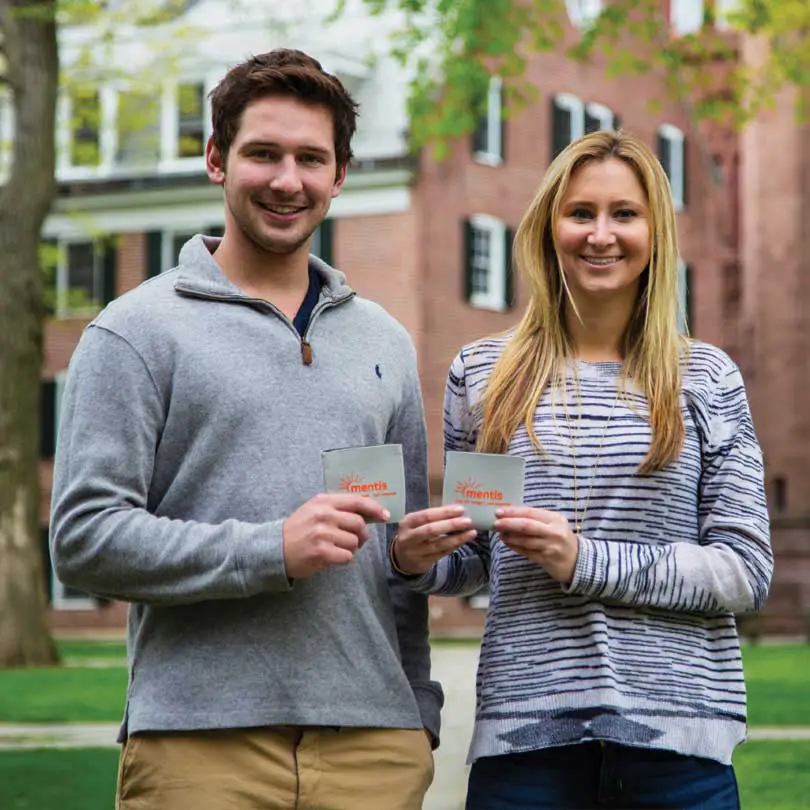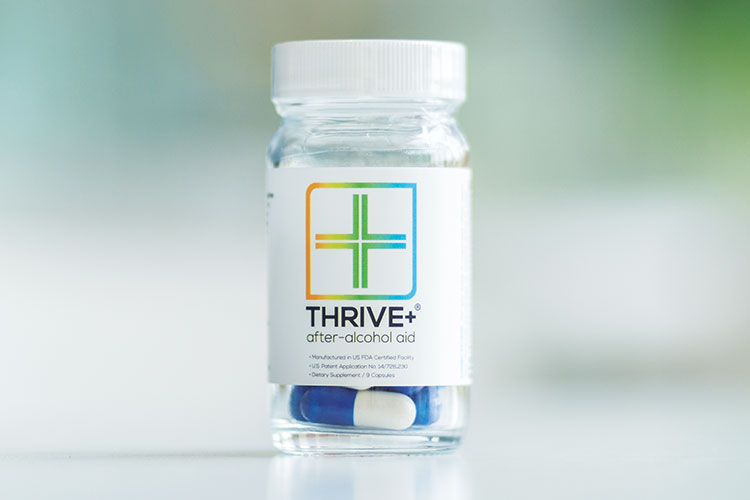Imagine you wake up Sunday morning to the shrill whir of the blender as your roommate makes their morning smoothie before heading to the library for a day of productive studying. The noise grinds against your brain like nails on a chalkboard, and you want to yell at them to shut up, but you’re too thirsty. You try and look for your water bottle, but you forgot to take your contacts out last night, so it hurts to open your eyes.
You look at the time—9:30 a.m.—and you curse yourself for leaving your ten-page paper until the day before it’s due. You almost curse yourself for going out drinking the night before, but nah, you had way too much fun to regret that. It’s really the choice for higher education that your hungover brain regrets the most.
And yet you persevere. You release yourself from the sweet embrace of your blankets, stumble into the shower and pray the cold water that beats against your neck will hydrate you. Afterward, you find the greasiest, yet most affordable burger possible and inhale it as fast as your poor stomach will allow.
After all that, you’re desperate for a nap, but that ten-page paper looms over you, and despite your regrets, you’re dedicated to your education. So you pop some Advil, fill you water bottle and get to work. It takes you twice as long as your non-hungover brain could have done it, but by the end of the day, you’ve finished, and you prepare yourself to do it all again the next weekend.
If only there was a way to enjoy all the fun of drinking, without the consequences of a hangover. Well, you wouldn’t be the first person to wish that, and if you google “how to get rid of a hangover,” you’ll see pages and pages of at-home remedies you can try. If you look up “hangover cures” on Amazon, you’ll find plenty of products to buy. BrightDay. Mitadone. Toniiq. Drinkwel. Blowfish.
But there are two products that stand above the rest: Thrive+, created by Princeton student Brooks Powell; and Mentis, created by Yale students Margaret Morse and Liam McClintock, all three of whom graduated in May. Both products have been thoroughly tested by focus groups, and all three students proudly proclaim, “I use [my product] every single time I drink.”

But why do people get hangovers anyway? Dehydration? Blood sugar deficit? Lack of sleep? According to the Mayo Clinic, these are only three of seven contributing factors. Alcohol also irritates the lining of your stomach by increasing the production of stomach acid and delaying the organ from emptying, and while it’s true that alcohol is a downer and makes you tired, your quality of sleep will decrease, which leaves you groggy and tired, meaning your body lacks the rest it needs to recuperate. Drinking also triggers an inflammatory response from your immune system, which causes a lack of concentration, memory problems and decreased appetite. Perhaps the most important cause of a hangover, however, are the congeners found in beer, liquor and wine, which give these drinks their flavor. Dark liquor like brandy and whisky have a larger amount of congeners than clear liquors like vodka and gin, so do with that information what you will.
Hangover symptoms usually begin when your blood alcohol reaches zero, which happens before you wake up in the morning. The most common symptoms include fatigue, thirst, headaches, nausea, decreased sleep, sensitivity to light and sounds, dizziness and a decreased ability to concentrate. While there aren’t an abundant number of scientific studies about hangover prevention, Brooks Powell did find a particularly interesting one in January 2014 that laid the groundwork for the beginning of his company.
“I came across an article in the journal of neuroscience. In this study, they were looking at dihydromyricetin (DHM), and it essentially showed that if you injected it straight into the belly of a rat, right after it had the equivalent of fifteen beers for their body size, they’d instantly sober up,” he says. “They also found that they showed no signs of hangovers. A third thing it showed is that rats that had DHM in their water never became alcoholics, as compared to all of the control group.”
That was a really big deal. “I read this,” Powell continues, “and I’m thinking, oh my gosh, this is insane.”
He discussed his newfound discovery with his neuroscience professor, Sam Wong, who explained why DHM was so effective. According to Powell, “It binds to the same alcohol receptor that alcohol binds to, and by doing that, DHM reduced short-term alcohol withdrawal, which is the biggest cause of a hangover. This is why ‘Hair of the Dog’ or Bloody Marys work so well. It essentially reduces that short-term alcohol withdrawal by binding to the same brain receptor, without introducing more alcohol into the system, and, counter-intuitively, by doing that, it puts you at less risk for alcoholism.”
The more he thought about it, the more inspired Powell became. “We could start this as a company,” he said, “originally being a hangover cure. But also, hopefully, do some societal good through reducing alcoholism.” Powell took a year off from school, and, using the $20,000 inheritance his grandfather left for him, he created Thrive+, an “after-alcohol aid.” Five months after his product was first on the market, he made back his $20,000, plus some. “That was pretty exciting,” he says.
Fast forward to the end of May 2017, when Margaret Morse and Liam McClintock released their first pre-order of their hangover-prevention supplement, Mentis, which comes from a Latin term meaning “of a sound mind.” They had raised almost $47,000 in their Indiegogo campaign, which was 226 percent over their original goal.

McClintock, a History major and Division 1 squash player, originally came up with the idea for Mentis. “It started as a personal problem, as a lot of start-up ideas do. I’m a big fan of supplements—I take about eight different ones on a daily basis—so the first thing I did was order some of the products on the market that claimed to help with hangovers, and nothing was too effective. As a result, I figured there could be an opportunity to at least figure out what the science behind a hangover was, and to potentially develop a product that would do a better job of preventing one.”
It was then he called on Margaret Morse, a Molecular, Cellular and Developmental Biology major, for help. It may seem like an unlikely pairing at first, but the two have a great partnership and friendship. “We’ve known each other since the beginning of freshman year,” McClintock says. “We’ve worked on other projects and taken some classes together. We get along pretty well as a team and friends, so it was a partnership that we knew would be successful. When I came to Maggie with this idea of a company, I needed someone with more of a science background, and since we both have different skills, it was a good match.”
Morse and McClintock made sure to do their research before officially launching their product, though. They wanted a quality product that was as effective as possible. “We were able to look at the competitors out there,” Morse said, “and see what they were doing. With our understanding of the main processes that cause a hangover, we were able to come up with a formula that we thought was great to prevent these processes from happening.”
Even though their Indiegogo campaign was successful, they still needed people to test their original product and a place to create it, so they used what they had at their disposal. “We mixed [our original product] in our apartments on campus and gave it to a trial panel of volunteers. We gave them a few samples, got their feedback and adjusted the ingredients a little bit. By testing our ingredients individually, we were able to come up with a formula that we were happy with. Then, when we reached out to a pharmaceutical manufacture, we worked with them to really nail down the exact quantities that we wanted to use.”
Simply put, the final product of Mentis helps produce enzymes to break down the byproduct of alcohol, and replenishes lost nutrients your body needs in order to feel good and function on a basic level. Mentis also provides additional liver protection, because it works to prevent the processes from happening in the first place.
I felt so good, I spent the next hour cleaning up my apartment from the night before, which made my roommate very happy.
Of course, neither Thrive+ nor Mentis is a cure-all solution. They’re supplements and aids to help you feel good. Morse described how he thinks about their product, saying, “You can sort of look at it like sunscreen. Just because sunscreen exists, doesn’t mean that people should spend countless hours in the sun and expose themselves to those cancerous rays. It’s a way to be in the sun, as they would have already been, and to protect themselves.”
So, it’s no surprise that there’s a point where both these products become less effective. Mentis doesn’t guarantee its effectiveness after eight drinks, while Thrive+ offers a “50 percentage point reduction,” which basically means that it reduces hangover symptoms by fifty percentage points. For example, say 100 percent is feeling amazing, and zero percent is feeling like death. If your hangover usually makes you feel like you’re at 30 percent the next morning, Thrive+ will make you feel like you’re at 80 percent, but not a perfect hundred.
I was fortunate enough to be able to test each of these products, and I took this responsibility very seriously. While I’m pretty familiar with how my body responds to alcohol, my tolerance has lowered quite a bit since school let out, so I decided to drink on three separate occasions, all in the name of science, of course. The first would act as my “control.”
I had exactly six drinks over two hours, and I didn’t take any Advil or drink any extra water before bed. And let me tell you, dear readers, I felt absolutely awful the next morning. I can never sleep long when I’m hungover, and this time was no exception. I woke up around 6:30, my mouth dry as all heck, my head throbbing and my stomach less than thrilled to be attached to my body. I’m just happy I didn’t puke.
Only after I had a greasy breakfast, a shower and a nap did I feel like a person again.
After a week of recovery, I drank again, this time relying on Thrive+ to stop my hangover, or at least diminish it. Again, I had six drinks over two hours and forwent the Advil and water. Instead, I had three pills, the normal dose one is supposed to take, before bed. I’ll admit—it was a bit hard to swallow three big pills, especially when I was drunk. But, the next morning was worth it.
I still woke up at 6:30 in the morning, and that sucked. I was still dehydrated, and that sucked. But I had no headache. Literally none. And I had no stomachache. I felt so good, I spent the next hour cleaning up my apartment from the night before, which made my roommate very happy.
Two weeks later, it was time to try Mentis. I poured one of their packets into a glass of water with my dinner. Stir until orange. It smelled really good, like a combination of orange and mango. The taste, however, was a bit disappointing. Actually drinking it was fine—it had a vague orange flavor to it—even though it was a little chalky. The aftertaste, however, was pretty medicinal. I ended up washing it down with a chaser. But, to be fair, it is medicine. Nyquil doesn’t taste great, but you drink it for the health benefits, and I was happy with the benefits Mentis gave me the next morning.
I slept in a little later—until 9:30. While that’s still extremely early for me, it’s way better than 6:30. I wasn’t as dehydrated, either. I still wanted to drink a liter of water when I woke up, but it wasn’t unbearable. My headache was gone, and my stomach was completely fine, though. No nausea, and no lack of energy. I didn’t feel a need to take a nap that day, and I didn’t need greasy food to feel human. Although I got greasy food anyway, because yay carbs.
Both of these products are effective, and both have their pros and cons. Thrive+ was great for me because I’d rather take pills than drink something I don’t like. It’s also a good idea if you weren’t originally planning on drinking a lot, but accidentally got wasted. You only need to take it when you see fit. However, you need to actively remember to take the pills, and once you take the pills, you’re effectively forcing yourself to stop drinking for the night.
Mentis is more of a preventive measure, and since you take it before drinking, you don’t have to worry about it for the rest of the night, which is nice if you’re the type of person who doesn’t usually go back to their own house after a night of drinking. However, you run the risk of taking it when you don’t need to, and for a college student on a budget, that’s $5 down the drain.
So, Brook Powell’s Thrive+, or Maggie Morse and Liam McClintock’s Mentis? I guess you’ll have to try them both and see what’s best for you.

















